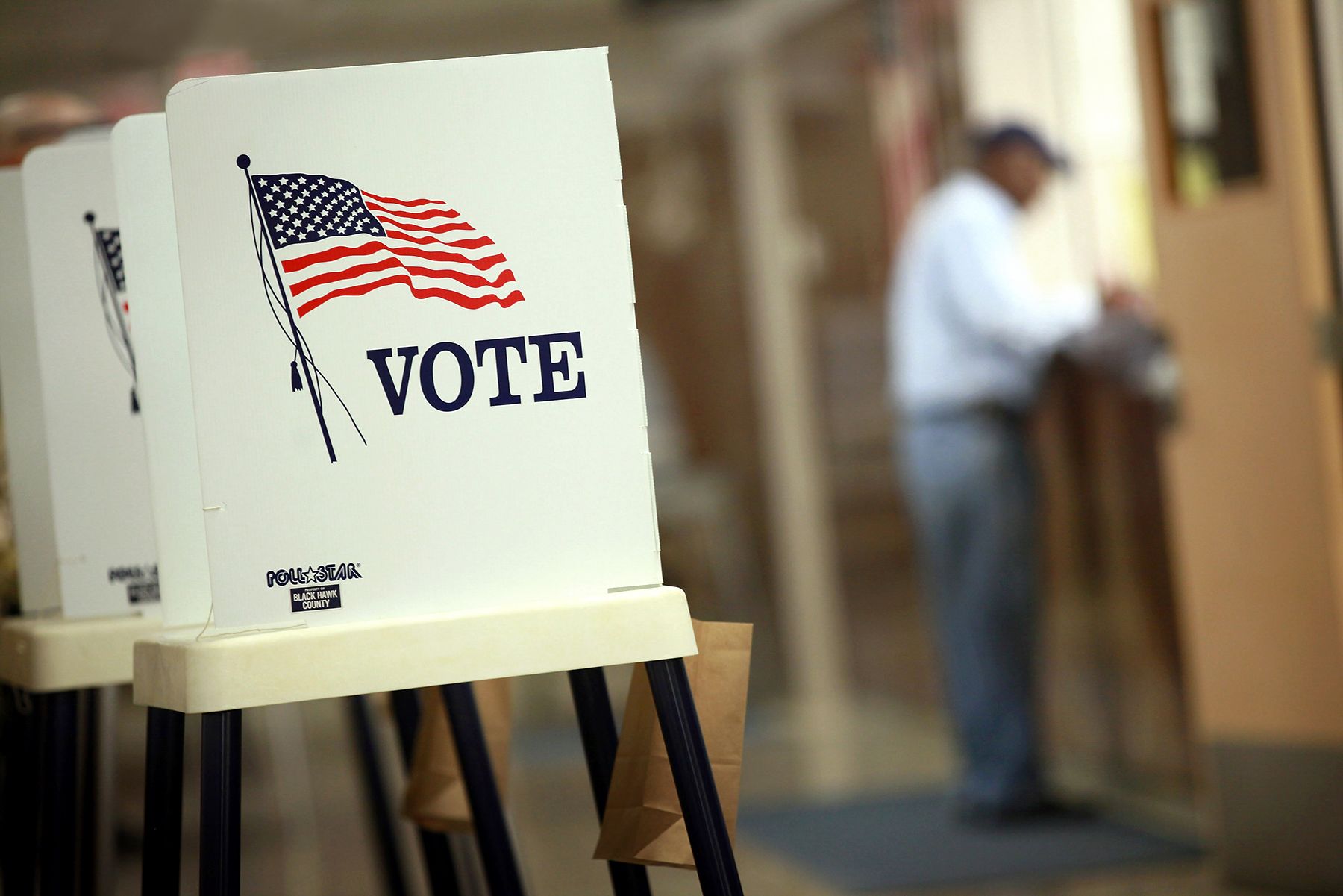Ensuring Democracy - A Deep Dive Into Election Integrity
Uncover the essence of election integrity in this article, addressing challenges from voter registration to countering interference. Explore the role of independent commissions and simple measures in fortifying democracy. Delve into securing the vote, countering cyber threats, and ensuring fair campaign financing. Navigate the intricacies of election integrity, safeguarding democratic principles.
Author:Hajra ShannonReviewer:Paula M. GrahamNov 17, 2023736 Shares81.8K Views

Election integrityis the bedrock of any thriving democracy. It encompasses a myriad of factors, from the registration of voters to the counting of ballots. As nations grapple with evolving technologies, changing demographics, and concerns about foreign interference, the importance of safeguarding the electoral process becomes increasingly paramount. In this article, we explore the multifaceted aspects of election integrity and the challenges and solutions that define this critical component of democratic governance.
The Foundation - Voter Registration
Modernizing Registration Systems
The cornerstone of a robust electoral system lies in the accurate and inclusive registration of voters. The traditional paper-based registration processes, once the norm, are gradually making way for digital platforms in an effort to modernize and enhance efficiency. The shift to digital systems is driven by the aspiration to streamline the registration process, minimize errors, and adapt to the technological era. However, as we embrace this evolution, critical questions about the security and accessibility of these digital registration systems linger.
Challenges In Transition
The transition from paper-based to digital registration systems is not without its challenges. Concerns about data security, potential hacking vulnerabilities, and the overall reliability of digital databases must be systematically addressed. As technology advances, so too must the protective measures to ensure the sanctity of voter registration data.
Ensuring Inclusivity
Election integritygoes beyond mere accuracy; it hinges on creating an inclusive electoral environment. Striking a delicate balance between preventing fraud and safeguarding the rights of eligible voters is an ongoing challenge. In the pursuit of an inclusive system, the impact of voter identification laws and the practice of purging voter rolls come into sharp focus.
Voter ID Laws
The implementation of voter identification laws is a contentious issue. While proponents argue that these laws are necessary to prevent fraud, critics express concerns that they may disproportionately affect certain demographic groups, potentially disenfranchising eligible voters. Striking a balance that ensures the integrity of the voting process without erecting barriers for legitimate voters requires nuanced policymaking.
Purging Voter Rolls
The periodic purging of voter rolls, ostensibly to remove outdated or ineligible registrations, is another dimension of the inclusivity debate. While maintaining accurate voter rolls is essential, the process must be transparent, and safeguards should be in place to prevent the inadvertent removal of eligible voters. Establishing clear criteria for purging and implementing robust verification mechanisms is vital in maintaining a fair and inclusive electoral system.
The Path Forward
As we navigate the evolving landscape of voter registration, it is imperative to approach modernization with a commitment to both accuracy and inclusivity.
Understanding Election Integrity Challenges
The sanctity of elections, the cornerstone of any thriving democracy, is susceptible to a myriad of challenges that can compromise the integrity of the electoral process. From inaccuracies stemming from human error to deliberate acts of fraud, the multifaceted nature of these challenges demands a comprehensive understanding.
Improper Tallying And Reporting
One of the fundamental threats to election integrity lies in the improper tallying or reporting of election results. Human error, technical glitches, or insufficient oversight can introduce inaccuracies that undermine the trustworthiness of the electoral outcome. Ensuring meticulous attention to detail in the recording and reporting process is pivotal to preventing inadvertent errors that could cast doubt on the legitimacy of election results.
Fraudulent Voting - Multiple And Illegal Voting
The integrity of vote counts is further jeopardized by fraudulent voting practices, such as multiple voting and illegal voting. Whether through loopholes in the registration process or deliberate attempts to subvert the system, fraudulent votes can distort the true will of the electorate. Implementing stringent measures to detect and prevent such activities is essential in upholding the fairness and accuracy of the electoral process.
The Menace Of Malicious Actors
Malicious actors pose a significant threat to election integrity by manipulating the recording, maintenance, and tallying of votes. This deliberate interference can take various forms, including cyberattacks on electronic voting systems or the dissemination of disinformation to sow confusion. Moreover, these actors may tamper with or destroy critical evidence needed to audit and verify the accurate reporting of election results, adding a layer of complexity to the challenge.
Insights From The National Academies Of Sciences, Engineering, And Medicine
The National Academies of Sciences, Engineering, and Medicine underscore the severity of the issue in their publication, "Securing the Vote: Protecting American Democracy." The report emphasizes the vulnerability of election results to manipulation and the importance of safeguarding the entire electoral process. Acknowledging that malicious actors can introduce inaccuracies in the recording and tallying of votes, as well as compromise the evidence necessary for auditing, highlights the urgency of addressing these threats.
Securing The Future - Mitigating Risks And Ensuring Trust
To fortify election integrity, a multifaceted approach is imperative. This includes implementing robust cybersecurity measures to protect against malicious interference, enhancing oversight and transparency in the tallying process, and continuously refining voter registration systems to prevent fraudulent activities. Embracing technological advancements while remaining vigilant to potential vulnerabilities is crucial in safeguarding the democratic foundation upon which nations are built.
Electronic Vulnerabilities - Threats To Democratic Processes
Unveiling Security Vulnerabilities
The advent of electronic systems in the electoral process has undoubtedly streamlined voting mechanisms, but it has also introduced a new frontier of challenges. Security vulnerabilities within these electronic systems present an ominous potential for disruptions, jeopardizing the very essence of democratic decision-making. As highlighted by the National Academies of Sciences, Engineering, and Medicine in their seminal work, "Securing the Vote: Protecting American Democracy," the exploitation of these vulnerabilities can lead to severe consequences, ranging from the disruption of voting processes to the manipulation of vote counts.
Disruptions At Polling Locations
One critical facet of electronic vulnerabilities lies in the potential for disruptions at polling locations. Malicious actors, whether domestic or foreign, can exploit security weaknesses to disrupt the voting process itself. Such disruptions may manifest as technical malfunctions, denial-of-service attacks, or the manipulation of electronic voting machines. These disruptions not only impede the smooth operation of elections but also cast doubt on the integrity of the entire electoral system.
Remote Voting - A Target For Exploitation
As the scope of electronic voting expands to include remote voting options, new challenges emerge. Security vulnerabilities in remote voting systems can be exploited to compromise the integrity of votes cast from the comfort of voters' homes. Issues such as unauthorized access, tampering with electronic ballots, or intercepting transmitted votes become potential threats that demand vigilant safeguards.
Countering Threats - Insights From The National Academies
The National Academies' comprehensive report emphasizes the urgency of addressing electronic vulnerabilities to protect American democracy. The document underscores that exploiting security vulnerabilities can not only disrupt the voting process but also manipulate the actual vote counts, posing a direct threat to the accuracy and legitimacy of election results.
Recommendations For Securing Electronic Systems
The report advocates for a multi-pronged approach to secure electronic systems. This includes robust cybersecurity measures, regular and thorough system audits, and the incorporation of fail-safe mechanisms to detect and respond to any attempted disruptions promptly. Additionally, the importance of ongoing research and development to stay ahead of evolving threats is highlighted as a critical component of safeguarding electronic voting systems.
Safeguarding Democracy - Mitigating Foreign Interference And Disinformation
Cybersecurity In The Digital Age
In an era dominated by digital communication, the specter of foreign interference looms large over democratic processes. The rise of interconnected technologies has heightened the vulnerability of election infrastructure, political campaigns, and communication channels. As underscored by the National Academies of Sciences, Engineering, and Medicine, ensuring the cybersecurity of these critical components is not just advisable; it is imperative for the preservation of the democratic foundation.
Election Infrastructure - A Prime Target
Foreign actors, driven by various motives, pose a considerable threat to election infrastructure. Cyberattacks on voting systems, databases, and communication networks can disrupt the integrity of the electoral process. Safeguarding these systems requires a proactive and adaptive approach to cybersecurity, including robust firewalls, encryption protocols, and continuous monitoring to detect and thwart potential intrusions.
Political Campaigns - Battleground For Influence
Political campaignshave become prime targets for foreign interference, with adversaries seeking to sway public opinion and manipulate electoral outcomes. Cybersecurity measures for campaigns involve protecting sensitive information, securing communication channels, and educating campaign staff about the risks of phishing and other cyber threats. Collaborative efforts between governments, technology companies, and political entities are vital in building a collective defense against these evolving challenges.
International Cooperation - A Defining Element
Foreign interference transcends national boundaries, necessitating international cooperation to combat these evolving threats effectively. Information sharing, joint cybersecurity initiatives, and diplomatic efforts play pivotal roles in building a united front against foreign interference. By fostering collaboration, nations can enhance their collective resilience and respond more effectively to the dynamic landscape of cyber threats.
Combating Disinformation
The Menace Of False Narratives
Disinformation campaigns, fueled by foreign actors or domestic entities with vested interests, pose a severe risk to democratic discourse. The deliberate spread of false information can erode public confidence, sow discord, and undermine the legitimacy of election results. Recognizing disinformation as a formidable adversary, proactive measures are essential to mitigate its impact.
Identifying And Countering Disinformation
Identifying and countering disinformation requires a multifaceted approach. Implementing advanced algorithms and artificial intelligence for real-time monitoring can help detect and flag suspicious content. Collaboration between tech platforms, fact-checking organizations, and government agencies is crucial in swiftly addressing and debunking false narratives. Moreover, empowering citizens with media literacy skills enables them to critically evaluate information, fostering a more resilient electorate.
Educating The Public - A Proactive Step
Education emerges as a powerful tool in the fight against disinformation. Public awareness campaigns, school curricula that emphasize media literacy, and community outreach programs can empower individuals to navigate the digital landscape discerningly. By equipping citizens with the skills to recognize and verify information sources, societies can create a bulwark against the insidious influence of disinformation.
Fostering Trust - The Pillars Of Transparency And Accountability In Elections
Openness In Campaign Financing
Election integrity is not confined to the voting booth; it extends to the very heart of political campaigns—their financing. The transparency of campaign financing is a linchpin in preserving the fairness and legitimacy of electoral processes. Transparent reporting of campaign contributions and expenditures serves as a crucial safeguard against undue influence and fosters a level playing field for all candidates.
Mitigating Undue Influence
In the realm of campaign financing, opacity can breed corruption and compromise the democratic ideals of representation. Transparent reporting mechanisms act as a check against the undue influence of money in politics. Citizens, armed with knowledge about the financial backers of political campaigns, can make informed decisions and hold candidates accountable to the electorate rather than special interests.
Leveling The Playing Field
Transparency in campaign financing promotes equity among candidates. By publicly disclosing financial contributions and expenditures, campaigns are held to a standardized set of rules. This transparency helps prevent an imbalanced electoral landscape where financial prowess, rather than merit, becomes the determining factor in political success. In essence, it safeguards the principle that the voice of every citizen carries equal weight.
Independent Election Commissions
Guarding Against Partisan Influence
To ensure the impartiality and integrity of the electoral process, independent election commissions stand as bulwarks against partisan influence. These commissions play a pivotal role in overseeing elections, investigating irregularities, and instilling public confidence in the democratic process. By remaining free from partisan affiliations, they uphold the principle that electoral oversight should transcend political biases.
Overseeing The Electoral Process
Independent election commissions are tasked with the comprehensive oversight of the electoral process. From voter registration to the announcement of results, these bodies monitor and regulate each stage, assuring adherence to electoral laws and ethical standards. By doing so, they contribute to the creation of an environment where the democratic will of the people can freely and fairly express itself.
Investigating Irregularities
In the event of irregularities or allegations of misconduct, independent election commissions are empowered to conduct impartial investigations. This not only ensures accountability but also serves as a deterrent against fraudulent activities. The transparency of these investigations further bolsters public trust in the electoral process, emphasizing that electoral outcomes are determined by the will of the people, free from external manipulations.
Strengthening The Backbone Of Democracy - Common-Sense Solutions For Election Integrity
Retiring Outdated Voting Machines
Embracing the technological advancements of the 21st century is a critical step in fortifying the integrity of our elections. The retirement of old and outdated voting machines is not merely a matter of modernization; it is a safeguard against potential vulnerabilities. Upgrading our voting technology and transitioning towards the use of paper ballots in every state ensures a more secure and reliable electoral process.
The Reliability Of Paper
Paper ballots offer a tangible and auditable record of votes cast, mitigating the risks associated with electronic systems. By adopting a standardized use of paper ballots, we not only enhance the security of our voting infrastructure but also create a resilient foundation that instills confidence in the electorate.
Implementing Risk-Limiting Post-Election Audits
Ensuring the accuracy of reported election results is paramount to the integrity of the democratic process. The implementation of risk-limiting, post-election audits represents a commonsense solution to confirm the legitimacy of election outcomes. These audits involve a statistically sound sampling of paper ballots, providing a robust mechanism for verifying the accuracy of reported results while maintaining the efficiency of the electoral process.
Strengthening Trust Through Verification
Post-election audits not only serve as a deterrent against potential malfeasance but also contribute to the transparency of the electoral process. By incorporating these audits into election protocols, we send a clear message: the integrity of our elections is non-negotiable, and public trust is of paramount importance.
Safeguarding Voter Registration Databases
The backbone of any election lies in the accuracy and security of voter registration databases. To fortify this critical component, it is essential to ensure paper backups of these databases and electronic voter rolls. This redundancy not only provides a fail-safe in the event of technical failures but also guards against malicious attempts to compromise or manipulate voter registration data.
Redundancy As A Protective Measure
Paper backups act as a reliable safeguard, enabling the swift recovery of voter registration information in the face of unforeseen challenges. By integrating this redundancy into our electoral infrastructure, we add an extra layer of protection to the sanctity of voter registration, ensuring that eligible citizens can exercise their right to vote without impediments.
Eliminating Online Voting Vulnerabilities
As we advance into the digital age, it is imperative to recognize and address the vulnerabilities associated with online voting. Ballots cast by email or through internet portals are susceptible to hacking and cyber threats, posing a significant risk to the integrity of our elections. A commonsense solution involves eliminating the use of online voting to safeguard the sanctity of the voting process.
Prioritizing Security Over Convenience
While online voting may offer convenience, the potential risks it introduces to the electoral system are too great to ignore. By returning to traditional, offline voting methods, we prioritize the security and reliability of the democratic process, ensuring that the will of the people remains unadulterated by external interference.
Election Integrity - FAQs
How Does Democracy Ensure?
Democracy guarantees governance by and for the people, guided by the principles of representation, participation, and accountability. In the democratic framework, citizens possess the crucial right to elect their leaders and representatives, empowering them to actively engage in the decision-making processes that shape their society.
The cornerstone of democracy lies in the conduct of regular elections, serving as a vital mechanism to hold leaders accountable for their actions and policies. Moreover, democratic ideals, including the steadfast adherence to the rule of law, the protection of human rights, and the existence of a free press, play pivotal roles in ensuring that the voices of citizens resonate and are duly acknowledged.
For an in-depth exploration of the role of law in promoting social justice within democratic structures, you can refer to this insightful article on The Role of Law in Promoting Social Justice.
What Does It Mean To Strengthen Democracy?
Strengthening democracy involves enhancing the institutions, processes, and values that form the foundation of a democratic system. This includes promoting civic engagement and participation, ensuring transparent and accountable governance, protecting the rule of law, upholding human rights, and fostering a vibrant civil society.
Strengthening democracy also entails addressing challenges such as corruption, inequality, and disenfranchisement to create a robust and inclusive democratic framework. It is an ongoing process that requires a commitment to democratic principles and continuous efforts to improve the functioning of democratic institutions.
What Promotes Democracy?
Several factors promote democracy, and their interplay contributes to the growth and sustenance of democratic systems:
- Education:An educated populace is more likely to actively participate in democratic processes, make informed decisions, and hold leaders accountable.
- Free Press:A free and independent media plays a crucial role in informing the public, exposing corruption, and ensuring transparency, contributing to the health of democracy.
- Civil Society:A vibrant civil society, including non-governmental organizations (NGOs) and advocacy groups, acts as a watchdog, advocating for the rights and interests of citizens.
- Rule of Law:A strong adherence to the rule of law ensures that institutions operate within established legal frameworks, fostering trust in the democratic process.
- Elections:Regular, free, and fair elections provide a mechanism for citizens to choose their leaders, contributing to the legitimacy of democratic governance.
- Inclusive Institutions:Institutions that promote inclusivity, protect minority rights, and ensure equal representation contribute to a more robust and sustainable democracy.
- Political Participation:Encouraging political participation, from voting to grassroots activism, strengthens the connection between citizens and their government.
- Economic Development:A stable and prosperous economy can contribute to the overall stability of a democratic system by addressing social needs and reducing potential sources of discontent.
Conclusion
As democracies evolve, so must the mechanisms that safeguard their fundamental processes. Election integrity is not a static concept but an ongoing commitment to adapting and improving systems to meet contemporary challenges. By addressing issues of voter registration, embracing secure technologies, countering foreign interference, and promoting transparency, nations can fortify their democratic foundations and ensure that the voice of the people remains the driving force behind governance.
Jump to
The Foundation - Voter Registration
Understanding Election Integrity Challenges
Electronic Vulnerabilities - Threats To Democratic Processes
Safeguarding Democracy - Mitigating Foreign Interference And Disinformation
Fostering Trust - The Pillars Of Transparency And Accountability In Elections
Strengthening The Backbone Of Democracy - Common-Sense Solutions For Election Integrity
Election Integrity - FAQs
Conclusion

Hajra Shannon
Author

Paula M. Graham
Reviewer
Latest Articles
Popular Articles




